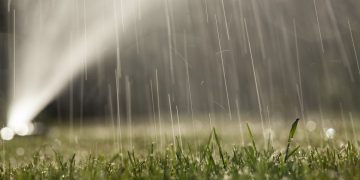#irrigation #sustainableagriculture #waterconservation #precisionirrigation #soilmoisturesensors #dripirrigation #micro-sprinklers
In this article, we will explore the benefits of using modern technology to reduce irrigation water use in agriculture. The latest data suggests that many farmers are still over-irrigating their crops, which can lead to a range of environmental problems such as soil erosion, water depletion, and increased use of energy. We will discuss some of the innovative technologies available to farmers today that can help them optimize their irrigation practices and achieve sustainable water use.
According to a report from the USDA, over-irrigation can lead to significant water loss and reduced crop yield. However, with the help of modern technology, farmers can better manage their irrigation systems and minimize water waste. One example of such technology is precision irrigation, which involves using sensors and weather data to determine exactly how much water is needed by each crop at a given time. By adjusting irrigation rates based on real-time data, farmers can save up to 50% of the water they would have used otherwise.
Another effective method of reducing irrigation water use is the use of soil moisture sensors. These sensors measure the amount of water in the soil and provide real-time information to farmers, allowing them to adjust irrigation schedules accordingly. By using soil moisture sensors, farmers can avoid overwatering and ensure that their crops receive the right amount of water at the right time.
In addition to these technologies, there are many other innovative irrigation systems available to farmers, such as drip irrigation and micro-sprinklers. These systems deliver water directly to the root zone of the crops, reducing water loss due to evaporation and runoff.
In conclusion, sustainable water use in agriculture is essential for the long-term health of our planet. By using modern technology such as precision irrigation and soil moisture sensors, farmers can optimize their irrigation practices, reduce water waste, and increase crop yields. It is important for farmers, agronomists, agricultural engineers, farm owners, and scientists to work together to ensure that our agricultural practices are sustainable and environmentally responsible.































